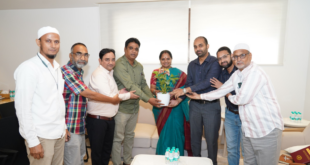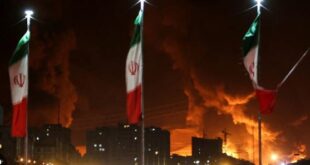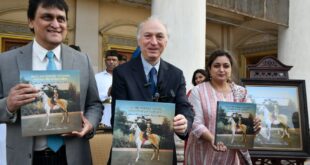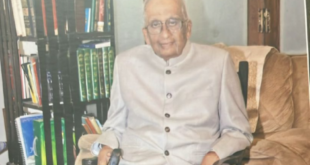by: Asad Mirza
The fifth edition of an annual gathering of Muslim leaders from across the world was hosted by Malaysia from Dec 19 to 21 last year. The conference was attended by leaders from 20 Muslim countries including Iran, Qatar and Turkey, and sought to foster closer cooperation among Muslim countries in the hope of searching new and practical solutions to address challenges facing the Islamic world.
The summit’s objectives itself was “not to discuss about religion but instead the state of affairs in the Muslim world”, which was in “state of crisis, said Malaysian Prime Minister and Summit’s host, Dr Mahathir Mohamad, at the inaugural session. He also highlighted the importance of Muslim countries understanding the factors fuelling the rise in Islamaphobia and how best to address these concerns.
Summit’s website billed it as an international platform for Muslim leaders, intellectuals and scholars from around the world to discuss and exchange ideas about the issues facing the Muslim world. It aimed at a dialogue, bringing together Muslim leaders, thinkers, intellectuals and scholars to find the best dynamic and action driven solutions for the problems faced by Muslim Ummah, guided by a comprehensive contemporary understanding towards the achievement of the highest values of Islam and the sovereignty of Ummah.
However, the event was marred by geopolitical and factional rivalries. Saudi Arabia, which dominates the Organisation of Islamic Cooperation (OIC), the oldest and only Muslims organisation representing most Muslim countries, felt affronted by what it saw as a challenge to its regional and international leadership of the Muslim-Arab world, and an attempt to build an alternative bloc to the OIC that could prove a threat to Saudi Arabia’s political and diplomatic influence, which had to be met with a swift pushback.
In his welcome address at the summit on Dec 19, Dr Mahathir said that almost all Muslim nations had been invited to participate in the summit albeit at different levels.
Part of this snub arose from Malaysia’s initial reluctance to extend invitations to Saudi and its Gulf allies, while it proactively engaged Turkey, Qatar, Iran and Pakistan, countries which have been at loggerheads with Saudi Arabia in recent years for a range of reasons. Though on its part Malaysia billed the Summit as complementary to the OIC rather than to compete with or replace it.
Despite this, the Saudis expressed concerns that the summit was not the right platform to discuss the matters of the world’s 1.75 billion Muslims. King Salman of Saudi Arabia reaffirmed in a phone call with Mahathir that such cases should only be discussed through the OIC.
There were also indications that the Saudis may have exerted diplomatic pressure on some of its allies, notably Pakistani Prime Minister Imran Khan who was initially scheduled to attend but later decided to skip the event, though just in September last he had very enthusiastically discussed the idea with Dr Mahathir at the side lines of the UNGA. Despite being one of the initial three architects of the summit, Pakistan eventually did not even send a ministerial-level representation.
The star attraction at the summit were President Recep Tayyip Erdogan of Turkey, Sheikh Tamim bin Hamad Al Thani of Qatar and President Hassan Rouhani of Iran. Allmof whom have had a fair share of differences with Saudis over regional and Muslim issues, in the past.
It is true that world’s 1.75 billion Muslims can’t see Dr Mahathir as their leader, due to historical linkages. As of 2013, In Malaysia there was approximately 19.5 million Muslim adherents, as compared to Saudi Arabia’s 25 million Muslims. On the other hand Indonesia has app 225 million Muslims. But for the mantle of global Islamic leadership, numbers doesn’t matter, what matters, is the location of the two Holy Sites and the region from which Prophet Muhammad propagated Islam. These emotional and historical linkages would prove difficult for Dr Mahatir to overcome. Though international foreign policy, particularly Malaysia’s stances on issues relating to the larger Muslim world, coupled with domestic politics in Malaysia was the main driving force in organising the summit, helping create a narrative, which could help him in continuing control of Malaysia and at the most offer him the mantle of a regional leader.
For the 94-year-old Mahathir, known for his outspokenness on Palestine, Israel and Jerusalem, the Summit provided a useful vehicle to achieve some domestic political benefits besides emerging as a regional leader.
More recently, Mahathir has taken the plight of the Rohingyas, criticised India’s new citizenship law, and supported Pakistan’s stand against India’s revocation of Article 370, which grants autonomy to India-administered Kashmir, in addition to express reservations about the latest Citizenship Act introduced in India. (In a knee jerk reaction against Malaysian stand India ‘restricted’ import of Malaysian palm oil).
Part of this foreign policy shift might have also involved growing ties with Pakistan and Turkey, and move away from Saudi Arabia, which former Prime Minister Najib Razak had warmed up to.
In reality, Malaysia has neither the influence to bring together countries in the divided Muslim world nor can it expect Arab leaders to take their cue from him or any other non-Arab leader.
The hosting of the KL Summit came hot on the heels of concerns over leadership succession from Mahathir to his heir-apparent, Anwar Ibrahim, with talk that Mahathir may have felt the need to shore up his own religious credentials to stem calls for succession.
And even though the Summit had seen a lower level of attendance from some countries and had met with concerns from parts of the Muslim world, there are plans for this to be an annual event renamed as the Perdana Dialogue, though it was unable to deliver what it had promised for the Muslim Ummah and was unable to pose a threat to the OIC and Arab hegemony. Though any worries about OIC’s relevance and influence is another moot question.
 Gawah (The Witness) – Hyderabad India Fearless By Birth, Pristine by Choice – First National Urdu Weekly From South India – Latest News, Breaking News, Special Stories, Interviews, Islamic, World, India, National News
Gawah (The Witness) – Hyderabad India Fearless By Birth, Pristine by Choice – First National Urdu Weekly From South India – Latest News, Breaking News, Special Stories, Interviews, Islamic, World, India, National News





